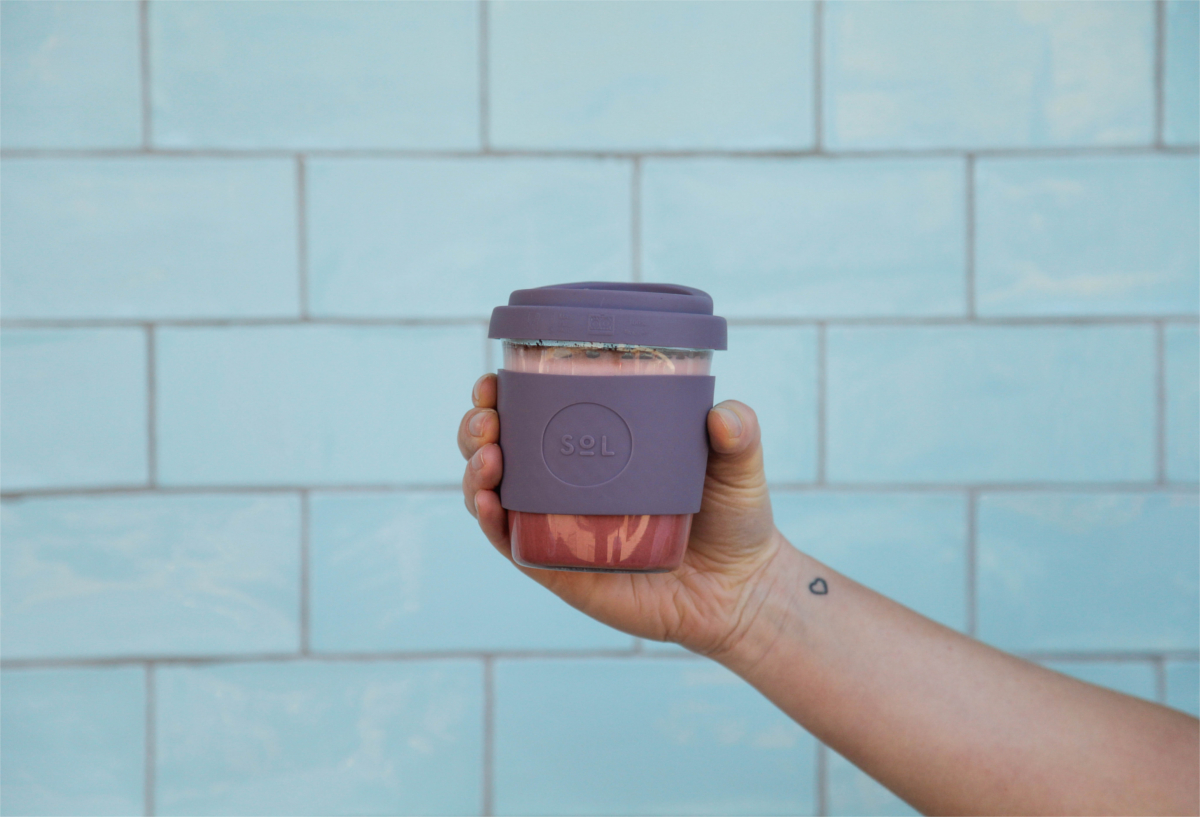To tackle the war on plastic and waste, creator of SoL Cups Rebecca Veksler plans to do it with something so simple it fits in your hand.
With #PlasticFreeJuly coming to an end, it’s a wonder why something like this can’t last forever.
#PlasticFreeLife?
Or how about a glass cup?
Rebecca Veksler made the switch to no plastic when she was diagnosed with autoimmune disease, and discovered how much heated plastic had affected her health, body and on a much larger scale, the environment around her.
But is the answer really as simple as making the switch to a glass cup? What’s the catch?
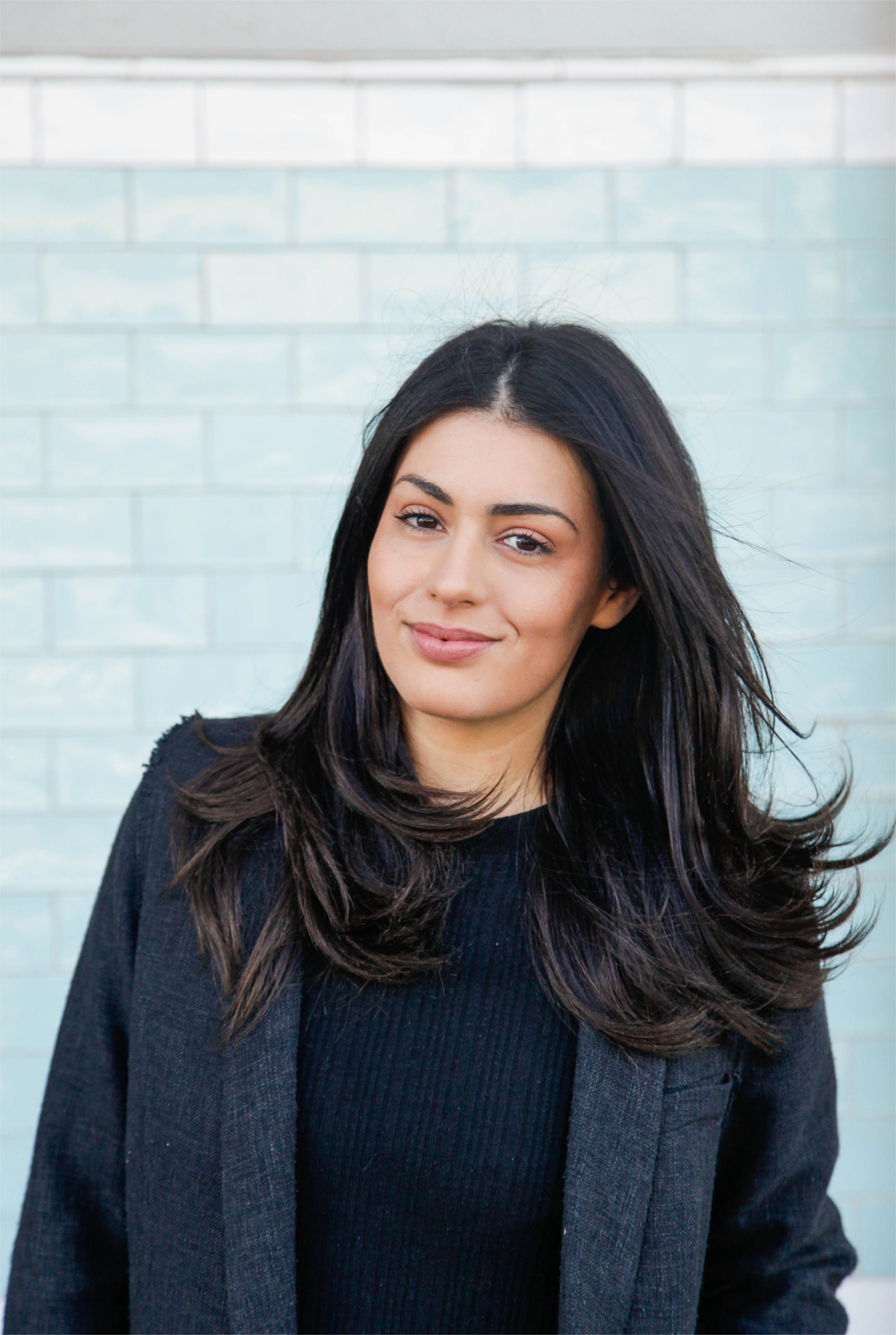
Creator of SoL Rebecca Veksler. Image Supplied
Well, there isn’t one.
Almost 33 billion takeaway cups are thrown away each year in Australia. Think of all those early morning and 3pm break time coffees from your favourite barista – and then think of how all of those cups are thrown away. Now imagine how many other Australians do the exact same thing.
That’s a lot of cups.
Veksler’s main goal is to reduce plastic production, which is no simple feat. But with her latest product it’s become a far more attainable goal.
The SoL Cup is sustainable, chemical free and a life-changing alternative to your dull looking takeaway cup. With thermal hand-blown glass and a BPA free silicone sleeve, it’s certainly something to show off. And whether you like it hot or cold or with two sugars – your cup is for you, and also for the environment.
“Turns out it wasn’t such a crazy idea.”
There’s a saying that goes, “when you do a good deed, you get one in return,” and this is certainly the case for SoL Cups. In making sustainable choices, you’re in turn helping to create a more liveable and longer-lasting environment.
While you might think bringing your leftovers to work in a Tupperware container is a step in the right direction, you might want to think again. There is still a risk and Veksler emphasises how harmful heating plastic can be and how it takes its toll on hormones in the body. Whether it be a coffee cup, or that jam-packed container of last night’s Chinese takeout, it all plays a part.
So why glass?
It’s a natural material which can be completely broken down. Cardboard takeaway cups on the other hand can’t be recycled because of their plastic waterproof lining, leaving behind a nasty long trail (450 years long to be exact). On top of the lengthy decomposing period, a standard takeaway cup is made with polymers like carbon, nitrogen, sulfur, chlorine, fluorine, phosphorous or silicon. All of which can leak into your beverage.
That creamy chai latte? Ruined.
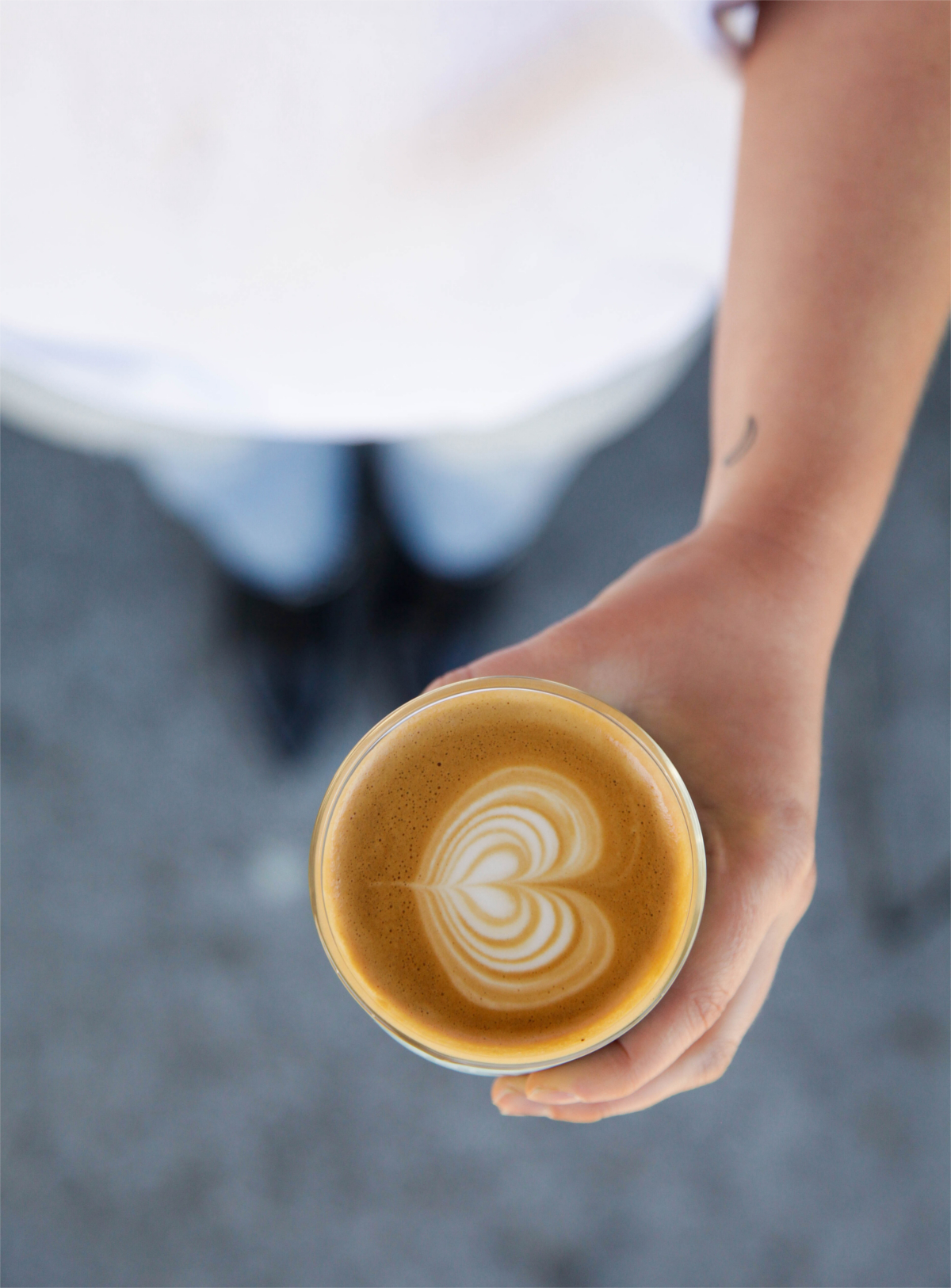
Love SoL. Image Supplied
The concept for SoL Cups was conceived over a conversation with Veksler’s mum. But something which seemed like a laugh and an unrealistic idea soon became a reality — a simple everyday design that would educate and inspire a solution to this war on waste, and drive the notion that #PlasticFreeJuly shouldn’t last for just 31 days.
“Turns out it wasn’t such a crazy idea,” says Veksler.
Like any new entrepreneur, Veksler was nervous about entering the wild market, apprehensive people wouldn’t be receptive of having a long-term relationship with their coffee cup. Coincidentally, the product was introduced at a time when the war on waste came into play and a much wider audience were keen to understand what harmful plastics were and solutions on how, as individuals, they can tackle this waste issue.
“It’s exciting to see so many people in the community caring and preaching about how bad plastic is for their health and the environment,” says Veksler.
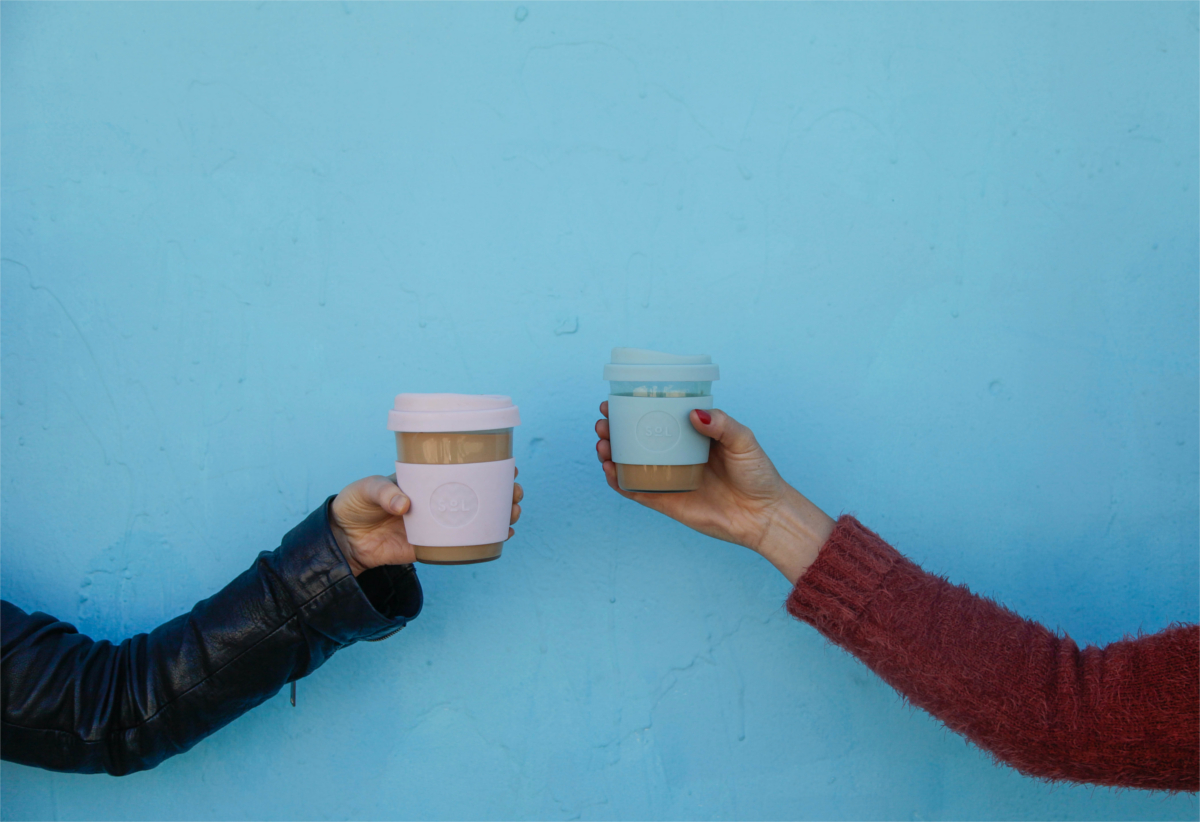
Two SoL Cups. Image Supplied
With a new wave of environmentally conscious consumers, SoL Cups were, and still are, a welcomed solution. But Veksler still wanted to do her research on the manufacturing process to ensure everything was sustainable and ethically produced. Just like your baristas and their beans, Veksler wanted a transparent relationship with her manufacturer.
So, what can you do?
According to Veksler, it comes down to three simple things.
Educate yourself, be conscious, and realise convenient now doesn’t always translate into convenient for the future.
As an entrepreneur, Veksler isn’t frustrated by those who aren’t aware of their plastic purchases and the impact they have, but instead sees it as an opportunity for improvement, education and awareness for the community.
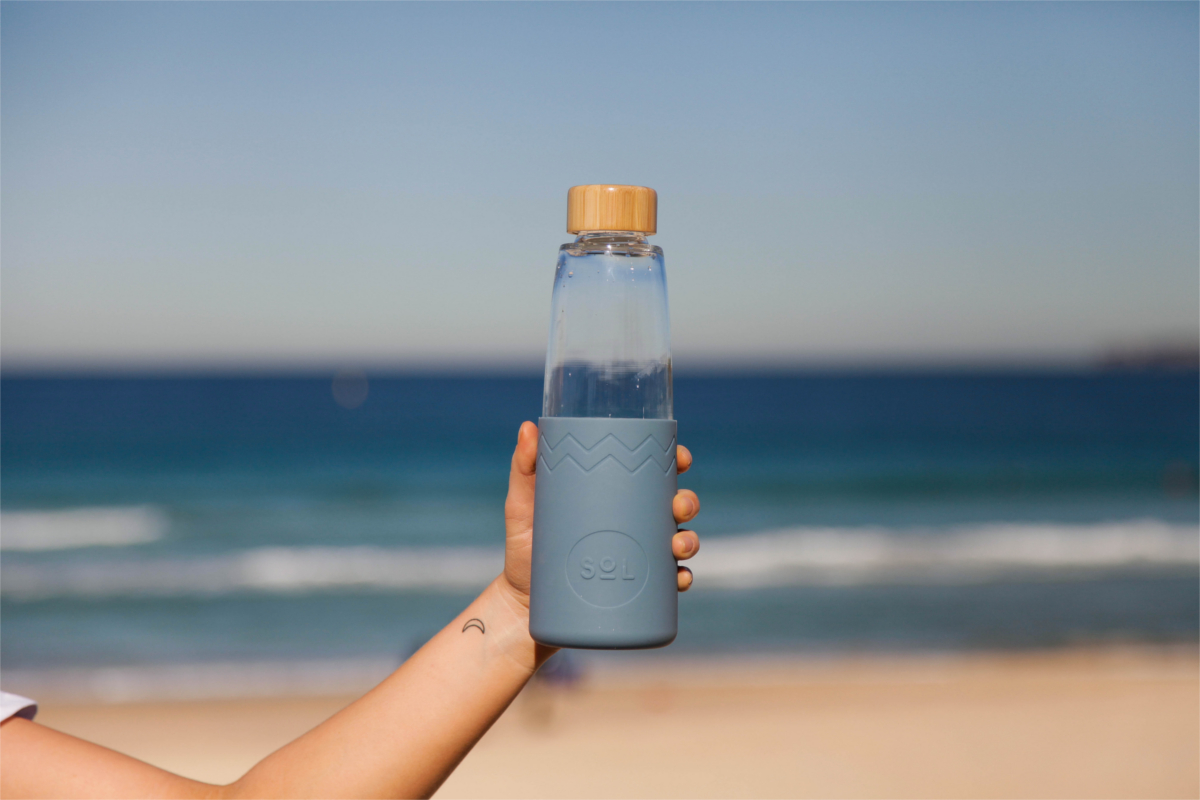
Re-usable glass SoL bottle. Image Supplied
Veksler believes changing these three major lifestyle factors can reduce your environmental footprint. Firstly, get yourself a re-usable water bottle (keep an eye out for the soon-to-be-released SoL bottles). Secondly, ban the bag! Switch to tote bags or even SoL pouches which are great for storage, shopping and reusing. And finally, steer clear of any products that are sold in plastic containers.
For more information or to see the entire SoL Cup range, visit their website solcups.com.

